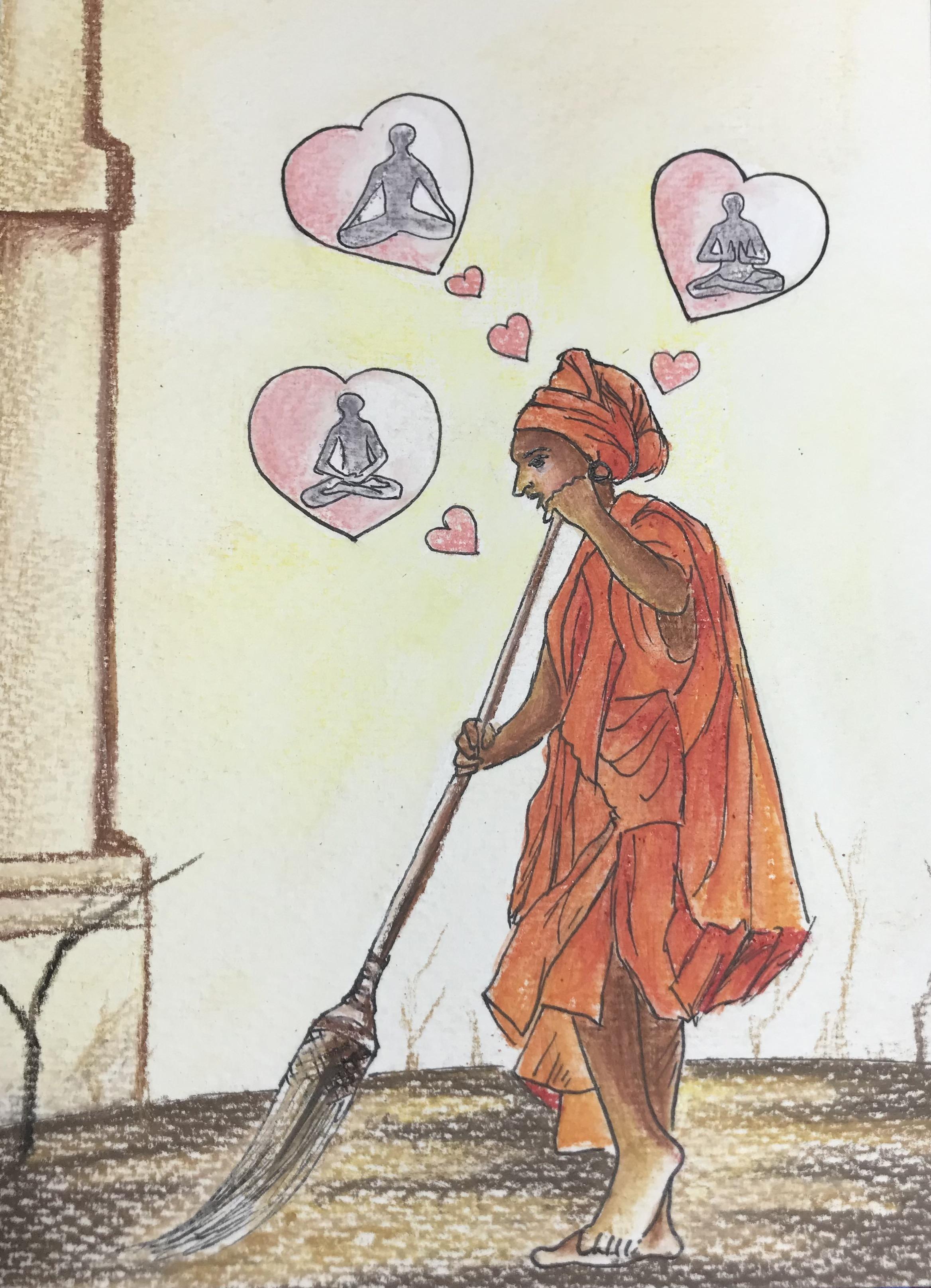Sweeping My Heart

IMAGE OF THE WEEK
We are grateful to Rupali Bhuva for offering this hand-made painting for this reading.

For me, a dark-skinned person of African descent, cleaning the temple as Zen practice felt inappropriate and uncomfortable when I was at the beginning of my training. When you are an older black woman and a young white man tells you how to mop the floor during work period, the experience is akin to being a maid or a reminder of slavery. Ordinary temple work is the kind of labor often relegated in this country to folks of color and poor people. It is work that can ensure a lower rank in society. [...]
For those who suffer from internalized “isms” like racism and sexism, to be humbled by spiritual practice is counter to their task of wellness and healing from dehumanization. If anything, they are looking to emerge from the place of submission. They are looking for a place to speak rather than be silent, to communicate the suffering of all “isms” being played out while sweeping the temple’s floor.
Yet, I stayed with Zen practice, doing the mundane, and years later I scrubbed the toilets when I was head student, in order, they say, to remain humble. The more I bowed, the more I scrubbed. Eventually, I felt my ancestors moving my body, back and forth. They told me this work was good. I was skeptical.
Me: “Really? I don’t need this.”
Ancestors: “Exactly. You feel you have become better than us.”
Me: “I went to school because you said education was the best thing for black people. I got a Ph.D. so I don’t need to do what black folks have always done.”
Ancestors: “Your pride is no good to us. Your degree is no good to us. We need your heart to be healed. Don’t let intellect take the place of love. You must love more.”
I swept longer, breathing, listening, crying. This is true, I say to myself.
Me: “But I worked so hard not to be oppressed as you were. I worked for justice. I prayed. I ate well. I did good deeds most of my life.”
Ancestors: “We need more than that from you. We don’t need you to be a good Buddhist, Muslim, Christian, follower of African Orishas, or whatever. We need you to remember the dust from which you came. We need you to remember a time before things went crazy, when they sold Africans like us. There was something before. It is still hidden from you. Find it. Keep sweeping—not to clean but to see and hear where your heart is blocked from what we see for you. We put you in a place where you would be bothered enough to change.”
Today when I clean the temple, I know it is my ancestors calling. I know that the memory within me of their existence as slaves is being understood and transformed. I know that temple cleaning is the motion arising from sitting meditation, not history repeating itself.
If I am fortunate enough to be offered a chance to sweep, it is a profound time with my own heart—to use the broom as a ritual connecting this life and the lives of those in my past. I am not replicating what my ancestors did as slaves. On the contrary, they have brought me to this moment.
Zenju Earthlyn Manuel is an author, visual artist, drummer, and Zen Buddhist priest. Excerpt above from this essay.
SEED QUESTIONS FOR REFLECTION: How do you relate to the notion of the sweeping practice being really about finding where the heart is blocked? Can you share a personal story of a time you went beyond your accomplishments and remembered the dust from which you came? What helps you be profoundly with your heart?